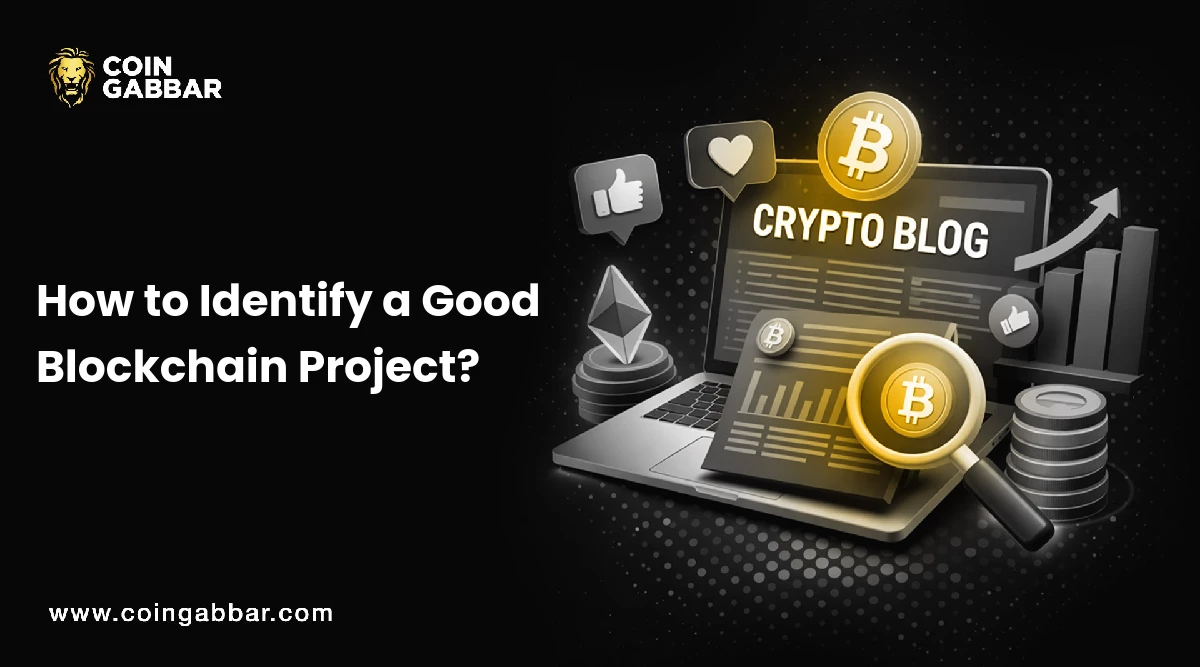
Blockchain technology is everywhere, new blockchain projects launch daily, each promising innovation and massive returns. But not every project is worth your time or money. So how can you tell which ones have real potential and which ones are likely to fail?
This guide breaks down the essential factors to evaluate before investing in any blockchain project.
A strong blockchain project typically demonstrates three core qualities: a clear purpose, an experienced team, and visible progress.
1. A Clear Goal and Real Use Case
A legitimate project solves an actual problem, not an imaginary one. The team should be able to clearly explain the issue and how their solution addresses it. A practical use case also means the project can start small, prove its value, and then scale.
Ethereum is a classic example, it set out to improve Bitcoin’s limitations by enabling programmable smart contracts. This clear vision, backed by strong technology, led to major innovations such as decentralized finance (DeFi), NFTs, DApps, and more.
2. An Experienced, Capable Team
Even the best ideas fail without proper execution. Look for teams with real industry experience, relevant technical skills, and a track record of delivering results. They should also have a detailed execution plan and show consistent progress from the early stages.
3. A Supportive and Active Community
A project’s community can be a major indicator of its long-term success. Engaged users provide valuable feedback, help spread awareness, and contribute to healthy growth. If the community is excited and supportive, it’s often a good sign.
Projects that combine a real use case, a strong team, and a committed community generally stand out as solid investments.
When evaluating a project, consider the following characteristics:
Practical Purpose
A good project solves real-world problems, this leads to higher utility, bigger user bases, and stronger long-term potential.
Solid Technology and Funding
The tech should be reliable, well-designed, and preferably tested. Adequate funding helps ensure the team can deliver what they promise.
Transparent Roadmap
A clear roadmap shows the team’s plan for development and helps you track progress. Openness to community feedback is another positive sign.
Reputable Backers
Look into the project’s partners, investors, and market makers. If credible firms support the project, it adds legitimacy.
Strong Marketing Strategy
Even great technology can fail without proper visibility. Projects that communicate well and build awareness tend to perform better in a crowded market.
Not every project is worth investing in. Here are red flags to watch for:
1. Weak or Anonymous Team
If a team hides their identities, exaggerates qualifications, or lacks relevant experience, that’s a major warning sign.
2. Unrealistic Promises
Any project claiming guaranteed returns, revolutionary breakthroughs without evidence, or impossible timelines should be approached with caution.
3. Solving Non-Existent Problems
Some projects simply force blockchain into areas where it adds no value. Many Web3 projects look exciting temporarily but fail because they don’t solve anything meaningful.
If a project feels unnecessary or overly hyped, trust your instincts.
Here’s a straightforward checklist for conducting proper research:
Evaluate the Team: Check their experience, credibility, and past achievements.
Assess the Technology: Look for robust architecture, real innovation, and successful testing or deployment.
Review the Roadmap: Are the timelines realistic? Does the project consistently meet milestones?
Observe the Community: A supportive and active community is a strong indicator of potential.
Examine the Governance Model: Understand how decisions are made and who has control.
Check Exchange Listings & Liquidity: A lack of liquidity doesn’t always mean a bad project, but it’s something to be aware of.
Analyze the Investors: Look for credible VCs, funds, or institutions supporting the project.
Read the White Paper and Yellow Paper: Examine technical details, tokenomics, and the overall vision.
Decentralization should also be considered, many projects claim to be decentralized but are not in practice.
To illustrate the difference, imagine the following scenarios:
Project A (Good Project)
Clear long-term vision
Well-organized and experienced team
Working product already released
Positive user feedback and real adoption
Project B (Bad Project)
Disorganized, unclear direction
Poorly functioning product
Negative user experiences
Lack of visible progress
Key indicators to compare:
Team’s execution ability
Clarity of vision
Quality of product
Community/user feedback
Projects that fail in these areas are high-risk and often short-lived.
Tokenomics
Tokenomics determines a token’s potential value and scalability. A blockchain project with unrealistic token supply, unfair allocations, or unsustainable reward structures is unlikely to succeed.
A token can't grow meaningfully if its market cap is already inflated relative to its utility. Strong tokenomics balance supply, demand, and long-term incentives.
Investors
Venture capital plays a major role in blockchain. Good investors offer not just funds, but also credibility, partnerships, and exposure. However, investors may liquidate holdings if the project stalls, so watch for sell risks.
Community
Crypto is heavily retail-driven. Active users help spread awareness, attract newcomers, and increase ecosystem engagement. A vibrant community often translates to stronger market performance.
The white paper outlines a project’s vision, technology, and goals.
The yellow paper covers the deeper technical specifications.
When reading them:
Look for clarity and realistic claims
Compare promises with existing industry standards
Verify whether the team has the expertise to deliver
Be cautious of vague explanations or overly technical jargon with no substance
These documents are a foundation for your due diligence, but always validate claims through real data and user feedback.
Before investing in any blockchain project, always take the time to evaluate it thoroughly. With countless projects in the market, it’s crucial to spot both red and green flags early.
Red Flags
Anonymous or fake team profiles
No roadmap or unrealistic goals
Overhyped claims with no substance
Good Signs
Transparent, experienced team
Thoughtful roadmap and strong vision
Realistic goals and working products
Positive user and community engagement
Ultimately, trust your research and intuition. If something feels off, it usually is. Focus on projects you genuinely believe in, and make informed decisions to avoid unnecessary risks.

Mona Porwal is an experienced crypto writer with two years in blockchain and digital currencies. She simplifies complex topics, making crypto easy for everyone to understand. Whether it’s Bitcoin, altcoins, NFTs, or DeFi, Mona explains the latest trends in a clear and concise way. She stays updated on market news, price movements, and emerging developments to provide valuable insights. Her articles help both beginners and experienced investors navigate the ever-evolving crypto space. Mona strongly believes in blockchain’s future and its impact on global finance.
9 months ago
Latest blockchain projects

2 years ago
one reason why the rich will be richer is because the poor thinks every opportunity thrown to them is a scam. they don't want to take risk. with [KARENTOMPSOM] on 🅸🅽🆂tAgr@M I've no fear of scam

2 years ago
nice projects
